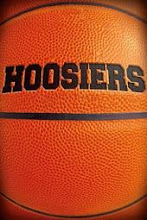Mark Cuban, Andrew Carnegie & Indiana University's Kelley School of Business

Mark Cuban, the Chairman, President & Co-Founder, HDNet, Co-Founder, Broadcast.com and owner of the Dallas Mavericks graduated from Indiana University's Kelley School of Business in 1981, where he received a BS in Management & Administration. Mark was a member of the rugby team and as a senior, gained hands-on buisness experience when he opened and ran a bar on Kirkwood Avenue in Bloomington, across the street from Nick's English Hut, called Motley's Pub. He was only 21 years old. Motley's was a good venture until the awkward event of a wet T-shirt contestant, and several other patorns, turned out to be underage. The bar now runs under a new name. However, Dallas Mavericks fans or IU/Bloomington loyalists can stop at a bar on the terrace level of the American Airlines Center and have a beer at.....you guessed it "Motley's Pub".
William L. Haeberle, professor emertius of management and senior fellow at the Johnson Center for Entrepreneuship & Innovation at Indiana University's Kelley School of Business had Cuban as a student. I have recently become acquainted with Dr. Haeberle through a group he founded called the The Alliance. The purpose of The Alliance is to connect senior executives of privately held Indiana companies through a quarterly forum consisting of 2 days of dialogue and discussion on critical business and leadership issues facing Indiana entrepreneurs. Dr. Haeberle told me he had Mark's class read Andrew Carnegie's "The Gospel of Wealth", published in 1889. Dr. Haeberle went on to tell me "it's my patriotic duty to make money." He told me to read the book and I would understand the learning. I have now since done that and understand exactly why he had his students read Carnegie's work.
I also did some research on Cuban and noticed he is listed on the Kelley School of Business website with the following commentary on his education; "during the course of the semester, we read Andrew Carnegie, which discussed how it was patriotic to be wealthy, and all the good one would be able to do. He (Dr. Haeberle) probably had more to do with my entrepreneurial education than anyone."
As a faculty member myself, I have been struggling with how to help students understand the balance between creating individual wealth and giving of their talents for the betterment of society. Carnegie clearly provides an intellectually challenging work to help us sort through that.
So.......Dr. Haeberle and Mr. Cuban, another group of students will now become exposed to this important work as we study capitalism, free enterprize and democratic societies.
"Andrew Carnegie (1835 - 1919) was a massively successful business man - his wealth was based on the provision of iron and stell to the railways, but also a man who recalled his radical roots in Scotland before his immigration to the United States. To resolve what might seem to be contradictions between the creation of wealth, which he saw as proceeding from immutable social laws, and social provision he came up with the notion of the "gospel of wealth". He lived up to his work, and gave away his fortune to socially beneficial projects, most famously by funding libraries. His approval of death taxes might suprise modern billionaires!
On Andrew Carnegie's tombstone reads the following:
"Here lies a man who knew how to enlist the service of better men than himself."


<< Home